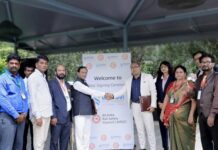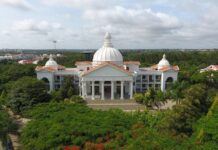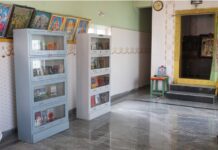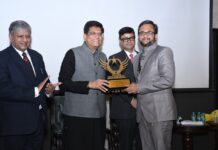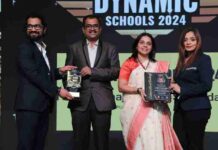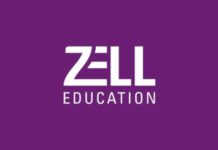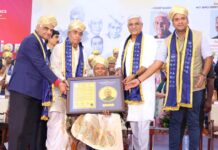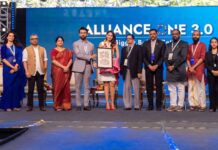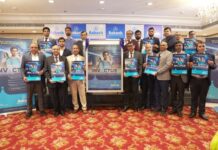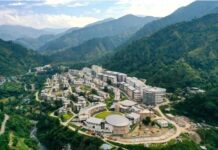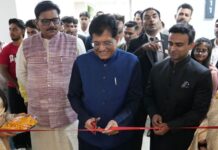Blended learning, adoption of technology, NEP will drive the change felt experts
Training of teachers. moving away from exam-focused learning system and increase industry participation are three reforms Jayesh Ranjan suggested that TS Govt must look in.
Brand Telangana as a destination for global education and educational hub is among many recommendations experts made to the government
Hyderabad, September 19, 2020: FICCI-Telangana State Council, in association with Government of Telangana, Telangana State Council of Higher Education (TSCHE) organised an online interactive session “NEW EDUCATION POLICY (NEP-2020)- A GAME CHANGER FOR TELANGANA” here in the city today
The interaction saw 5 parallel sessions, 23 speakers and lasted for 215 minutes. Each plenary session gave five actionable recommendations which FICCI will present them to the government for their consideration.
The concluding session was moderated by Mr T. Muralidharan, Chairman of FICCI Telangana State Council and Chairman of TMI Group
The Union government’s New Education Policy 2020 brings about several major reforms in education in India and we at FICCI Telangana State Council are here to see how this could be a game-changer for the state? How Telangana will emerge as global Educational Hub? said T. Muralidharan
Speaking on the occasion Sangeetha Reddy, FICCI national president termed NEP 2020 as progressive and commended all policymakers. FICCI has played a very important role in a dialogue with stakeholders prior to forming up the policy. She termed the policy as equitable, inclusive, accessible, exploratory and experimental.
The question in front of policymakers is how do we make our students more resilient?, how do we prepare for the job which has not taken birth? she asked.
Introduce lifelong learning. Incorporate science and technology into every aspect of life. Science and technology is going to be transformative. Integrate vocation education into the early part of student life, said Sangeeta.
Telangana needs a couple of global Universities. We are proud of ISB. UNDP estimates that the financial requirement for India to reach SDG goals by the year 2030, US $ 2000 Billion or 200 Billion US $ a year which is far beyond our government budget which is 76 billion US $. That is why we need to channelise private investments in education sector Dr Sangeetha said.
I don’t know if Telangana State could set up the National Science Foundation, making it a core body for serious interaction with industry, Dr Sangeeta added.
Naveen Mittal, Commissioner Collegiate Education, Govt of Telangana said he is upbeat about the future of the education in the backdrop of National Education Policy. Speaking at the session he gave his few points for the better future of Higher Education in Telangana. He said we must encourage more private investments in our Universities. Encourage funding of Public Universities in Research. He cited an example of Rusa Project taken up by Osmania University. It is a INR 100 crore project. We need to bring in more flexibility. Currently, Universities are very rigid about giving flexible options to students. This should go away. He spoke about blended learning which is need of the hour.
Director, NIT Warangal, Prof NV Ranga Rao said given the 21st-century requirements, Telangana Higher Education must aim to develop good, thoughtful, well rounded and creative individuals. It must enable an individual to study and also develop intellectual curiosity, scientific temper, creativity, a spirit of service.
Jayesh Ranjan, Principal Secretary, Govt of Telangana participating in the discussion suggested three fundamental reforms —Teacher Training, moving away from exam-based learning system and increase industry participation.
Jayesh said Telangana formed on a fundamental premise that its youth will would get more jobs. But for the surprise when checked, just 10% of Telangana students were employed in 1400 plus IT companies and rest of them were from outside the state. There were many reasons including lack of employable skills and the widened gap between industry and academia. That is when TASK was set up to train youth to get employable skills, he shared.
Some of the actionable recommendations made by five panels include: Increase Government investment in Higher Education; introduce globally relevant research, promote agile leadership, brand Telangana, produce globally acceptable graduates, train teachers in digital infrastructure, introduce deep tech programs for higher-value employment, start startup incubations in each college and university, private-sector research funding and go for meaningful collaborations and set up clusters of Universities, delink affiliations, make migration between colleges and universities seamless etc are the few recommendations made.
Many speakers felt that new reforms would transform the lives of millions of Indians. The new educational policy is said to be paving way for transformational reforms in school and higher education sector in the country.
The New Education Policy (NEP) when implemented, will revolutionize the Indian Education System. It looks well-structured and seems to have captured most of the important aspects of education. Built on the foundational pillars of Access, Equity, Quality, Affordability and Accountability, this NEP is aligned to the 2030 Agenda for Sustainable Development and aims to transform India into a vibrant knowledge society and global knowledge superpower by making both school and college education more holistic, flexible, multidisciplinary, suited to 21st century needs and aimed at bringing out the unique capabilities of each student. It will make our students globally competitive and also has the potential to make India a global hub for Education.
The Interactive session was planned in this backdrop. It was structured as:
– Plenary Session on ‘Making Telangana A Global Higher Education Hub’
– 3 Parallel Sessions on
* Blended Learning
* Achieving Sustainability in Higher Education space
* Student Outcomes for Building Quality Resource Pool
The key takeaways of the parallel sessions will be presented in the Concluding Session.
Please access the recorded version of the concluding session by clicking the following link.
https://player.vimeo.com/video/459444655
Corporate Comm India (CCI Newswire)



